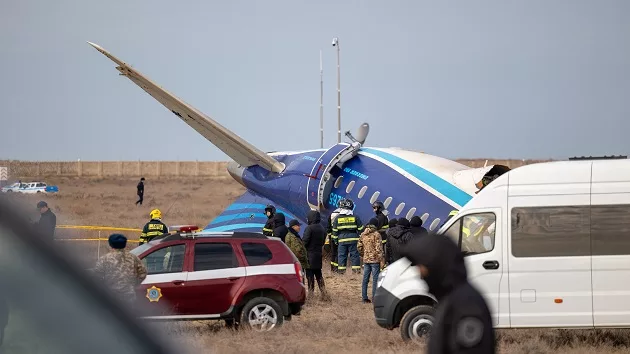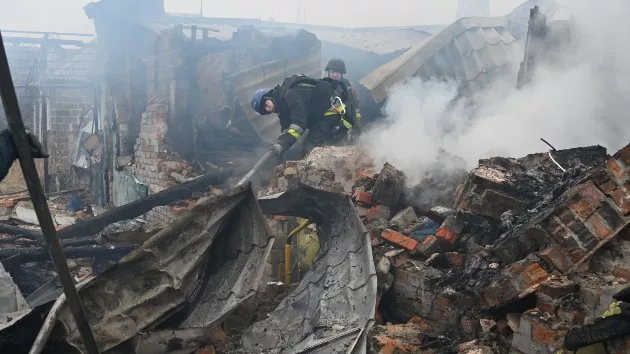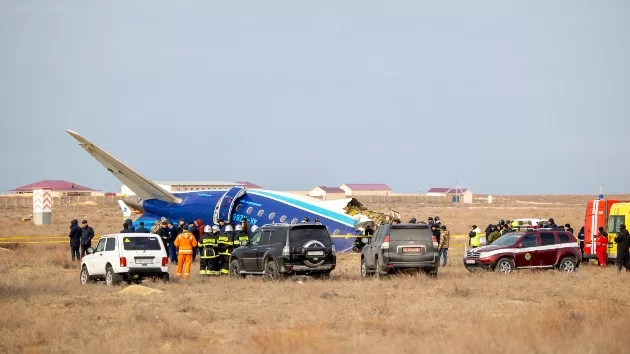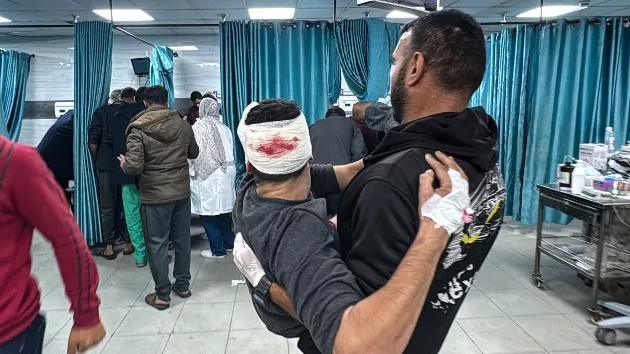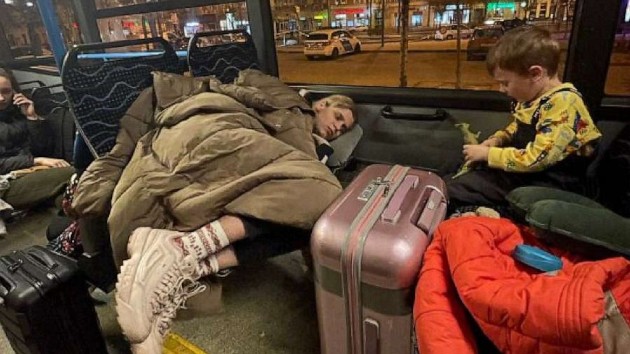
(VANCOUVER, British Columbia) — Pavlo Tsviliuk considered emigration to Canada long before February 2022, but had been planning to move there only after giving birth to his children in Ukraine.
A 28-year-old software engineer and developer and his wife — an influencer with over 100,000 subscribers working with Ukrainian brands — used to have a decent life in their home city of Odesa in southern Ukraine. But the unprovoked military invasion of the Russian army destroyed this pastoral.
“It was understood that the war is coming and some of my friends moved from Odesa to western Ukraine even in January,” Pavlo said, speaking very slowly as it is harder for him to speak Ukrainian but he doesn’t want to speak Russian any more.
“On Feb. 23, we purchased new suitcases and power banks in order to get on the bus to the neighboring Moldova, but the next morning, when the invasion started and Russian missiles hit Odesa, we were only partially packed,” he said.
In a hurry, they reached the bus station with a 4-year-old son, Tymofiy, in his hands while his pregnant wife was carrying the luggage.
“There was a panic, chaos all around and the sounds of explosions in the city,” Pavlo said.
The family crossed the Ukrainian border on Feb. 24 and for weeks traveled through Moldova, Romania, Bulgaria, Greece, Hungary and Switzerland. They arrived in Germany, where in May their second child — a boy named Ian — was born. From there, the family chose Canada to become their new home and now they live in Chilliwack, British Columbia.
Over eight million people fled the war in Ukraine, according to the U.N. Refugee Agency’s statistics. Many were women and children. Many have been very warmly welcomed in countries in the world, said Yuliya Kovaliv, the Ambassador of Ukraine to Canada.
“It is unbelievable when you see so many open hearts, open doors of the houses — many Canadians who welcomed Ukrainian families for the first days and weeks upon their arrival,” Kovaliv said.
During a webinar organized by Canadian International Council, the diplomat sounded optimistic, talking mainly about the renovation of Ukraine after the war ends and expressing her confidence that the majority of Ukrainians who were forced to move to Canada will return home.
“Most of them want to come back home — especially families whose husbands and parents are in Ukraine,” Kovaliv said, adding, “We value the support of Canadian government who helped Ukrainians more easily to get to Canada, to provide them with health insurance, with financial support, because many of them just lost everything what they had in Ukraine — many of them arrived in Canada even without their passports.”
Between March 17, 2022, and Feb. 23, 2023, over 882,000 Ukrainian nationals and their family members applied for a temporary resident visa to travel and stay in Canada temporarily, according to official statistics. Many used the Canada-Ukraine authorization for emergency travel (CUAET) program. And about 575,210 applications were approved during that period.
Ambassador Kovaliv said these newcomers are an asset for the Canadian economy. She said she admires Ukrainians, many of who want to be self-sustaining and have already found jobs and have been trying to settle down in Canada.
A family uproots, their renovated home abandoned
“We will survive anywhere, we are people of work, we have been working during our whole life, we never lived at someone’s expense ––not even at the expense of our parents,” said Olga, 50, from the city Rubizhne in Luhansk. “At first, we worked for others, and then we opened our own business. Over 10 years we had our own jewelry workshop — my husband is a very good jeweler, and I helped him.”
She said she remembers the early stages of the Russian aggression in 2014 — at that time it was only a couple of weeks of gun fire. But in 2022 it was different: heavy battles in Eastern Ukrainian forced Olga, her husband and their 10-year-old daughter to leave their home.
Since there was no possibility to cross the frontline as many vehicles with civilians were shot by Russian invaders, the family decided to choose the longer path. They traveled through Russia, the Baltic states and Poland. Olga’s sister-in-law helped a lot — and she invited the family and submitted all the documents needed for them to enter Canada.
The family waited for their visas in Russia for over a month, since the closest visa center was in Rostov. They started on bus through Moscow, then to Riga and on to Warsaw, where they boarded a plane to Canada. It took them seven days to reach British Columbia with a hope to start a new life there.
Several weeks before the full-scale invasion the family had finished the renovation of their apartment.
“We never left Ukraine before that — never visited any other country,” Olga said. “For years we had been saving money for the renovation — every detail was chosen thoughtfully but now we have lost our cozy nest.”
Olga said she is grateful to the Canadian people for their warm support: “One Canadian family bought us the tickets and paid for our hotel in Poland. As at that time we were out of money — we had enough means just to get to Poland as we spent almost all our savings in Russia on food and accommodation.”
The same family hosted Olga, her husband and their daughter for two months.
“This family owns a big house, everything inside is snow white — when we entered it I was afraid even to sit down somewhere,” Olga said. “I was asking myself, ‘For God’s sake, why these people are bringing some three total strangers into their beautiful, snow white home?’ But at the same time, they didn’t host another family after us — we were lucky that they helped us. It is very hard to find people like that — it is a rare thing now.”
Olga’s family had spent their last month spent at home in Ukraine in the basement because of constant shelling. In Canada they at first felt excitement and admiration, she said.
“It was like a real heaven for us here — people are walking around, smiling,” Olga said. “During the first two months I guess I couldn’t stand the sound of an airplane or a helicopter — overreacting to those.”
Both of them were lucky to find jobs immediately. He found work as a jeweler two days a week. He also works as a loader at the airport. She works as a sales associate in the Salvation Army thrift store.
“We don’t complain at all,” she said. “You have to survive somehow especially without proper command of English language. People there were very kind to adjust the work schedule to my needs as I have to take the kid from school, and I am grateful. I do not worry at all here — in any case we will be able to find some work to do.”
Although a part of her family still lives in Ukraine on the territory occupied by the Russians, Olga said she does not see her family going back in the near future: “I see no end of the war in the nearest years. It will take not a year or two — it will go on for several years. And, naturally, during it we will not return — we are going to do everything possible to stay in Canada. There is no point in getting back there. Even when the war is over there will be complete destruction — our town is plundered for 80%.”
Five years from now, Olga hopes to learn English and possibly start a business in Canada to move forward.
The biggest concern for Olga is the future of her daughter, 10-year-old Zlata, who enjoys her elementary school in Canada very much. During the winter break, she was sad, as she would prefer to be at school.
“The teachers here are glad to interact with children and children feel that it makes the school interesting for them, not so plain and boring as back in Ukraine,” Olga said.
Offers of support, as some struggle to live away from home
“It is hard to say if the newcomers will return to Ukraine soon,” father Mykhailo Ozorovych, the abbot of the Holy Eucharist Cathedral in New Westminster, said.
During the last year, his parishioners have at least tripled, he said. The longer refugees stay in Canada, the less likely they are to return, he said.
“People have changed a lot: It makes a big difference for them how they live, how they pay their taxes. A lot of things were reconsidered,” Mykhailo said. “And all these small beams of hope allow people to think that there are enough changes to let them return to Ukraine.”
He added, “I hope that people who are staying here for a longer time because they are less emotionally traumatized, they are more capable in terms of finance, they have significant experience of life in Canada and they may bring more rapid changes in Ukraine for its restoration and development. I can see some signs of it.”
In the eyes of newcomers, he tends to see a mixture of feelings. He said he sees relief, disappointment and sometimes fear. Despite the distance between the people and their motherland, they cannot completely separate themselves from what is happening there. People have relatives there and in their thoughts, in Viber and in Telegram they are in Ukraine, Mykhailo said.
“Sometimes this kind of dichotomy turns into a sort of schizophrenia,” he said. “The person is disoriented in order to define where to live – here or there. So, people are getting tired very fast. It is hard to start a new life. This process takes a lot of time and people are tired already.”
Not only Ukrainian churches and community are supporting those Ukrainians who arrived in Canada during the last year. Local residents who have no direct connection with Ukraine are also trying to accommodate the families with children and turn at least some their days into a holiday.
“As a Jewish person I remember the Holocaust history in particular and that is why I want to do everything I can to help poor people who are fleeing the war and terror spread by another dictator — now the Russian one,” said Rita Albano, who organized a Christmas party for Ukrainians at her apartment in North Vancouver.
These kind of parties with Santa and presents might be very helpful for Ukrainian children — possibly traumatized by the war and their refugee experience.
Struggles continue, for all members of a family
“We were trying to represent the situation as some kind of a game to our son but after all these months I understand what kind of stress it was for him, this experience traumatized him as a child really understanding what is going on,” Pavlo said of about his 4-year-old son. “I started to read a lot of memoirs of the Holocaust and concentration camps survivors and I know that even a 2- or 3-year-old child understands everything. This trauma will more or less stay forever.”
As he attempts to take care of his children, providing for their future, Pavlo is constantly applying for the relevant job positions and simultaneously taking some courses to obtain proper certificates.
“In Ukraine these certificates were useless — your experience is more important and after the interview, when people see your account with your code, you might be hired without any certificates,” he said.
But in Canada the situation is different.
After 10 interviews he is still in the process of searching for the best position as sometimes the conditions were unsatisfactory for him or the proposed salary was too low. His country is at war, and his family won’t be able to return home for years, perhaps more than a decade, he said.
“I have big ambitions,” he said. “During this year I reconsidered my life goals and things I really want to do. I am planning to open another startup and cooperate with some powerful companies that make a difference in terms of the globe. And it doesn’t matter where to live — in here or in the US. I want to develop myself as a specialist capable of bringing something into this world. Because every day is too precious to be lost.”
Copyright © 2023, ABC Audio. All rights reserved.



